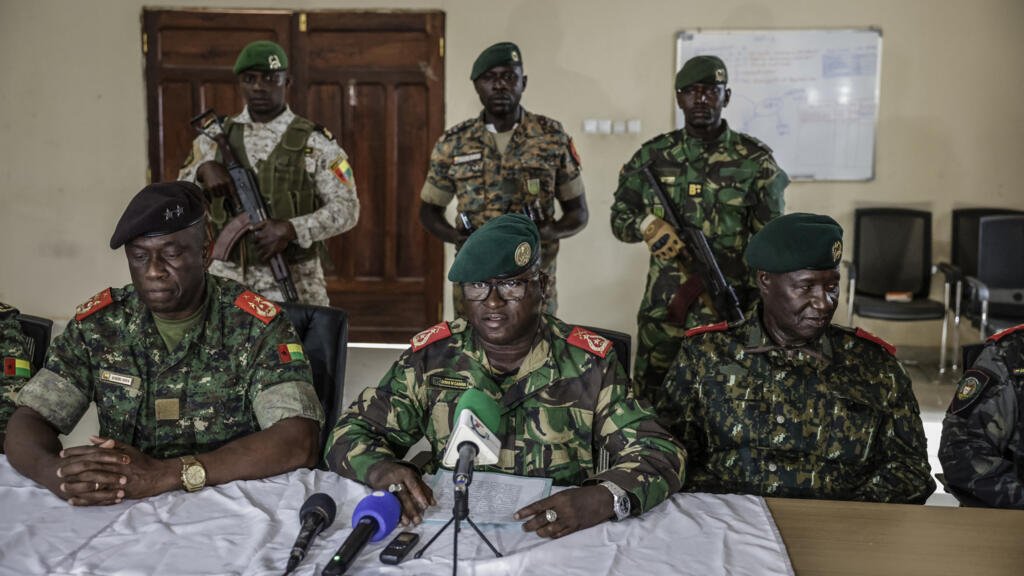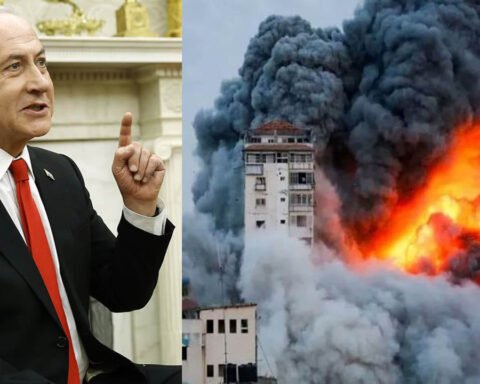Guinea-Bissau has been thrown into uncertainty after President Umaro Sissoco Embaló was reportedly seized by unidentified armed men just days after a tense and highly disputed national election in which opposition candidates were restricted from fully participating.
Sources in the capital, Bissau, confirmed that heavy gunfire was heard overnight in several key government zones, including areas surrounding the Interior Ministry and the presidential palace. Although details remain unclear, officials and residents described scenes of panic as security forces and unidentified gunmen clashed near strategic political buildings.
The incident unfolded at a moment of escalating political tension. Both Embaló and his main challenger, Fernando Dias, had claimed victory in the presidential vote held on Sunday, which coincided with parliamentary elections. The atmosphere worsened on Wednesday when gunfire was reported near the National Electoral Commission headquarters, just hours before preliminary results were expected to be released.
Witness accounts, including those from journalists on the ground, described crowds running from the electoral compound as shots rang out. The violence fueled fears of a wider confrontation as the country waited for clarity on the outcome of the election.
Antonio Yaya Seidy, spokesperson for President Embaló, said unidentified armed men stormed the electoral commission building to prevent the announcement of results. He alleged—without providing evidence—that the assailants were linked to Dias, though the opposition did not comment on the claim. With communications limited and officials remaining silent, the government has yet to confirm the president’s whereabouts or condition.
Guinea-Bissau, a small West African nation bordered by Senegal and Guinea, has a troubled political history marked by instability, power struggles, and repeated military interference. Since gaining independence from Portugal in 1974, the country has seen more than nine coup attempts, some of them successful—making political volatility a defining feature of its national trajectory. Information about the country’s geopolitical background can be found in open sources such as Guinea-Bissau.
Also Read; Tanzania Leader Rejects Class-Based Society Concept
Embaló, who came to power in 2020, has frequently claimed to have survived coup plots. His critics, however, argue that such claims have been used to justify political crackdowns and limit dissent. In this election, he was seeking to become the first president in more than three decades to secure a consecutive second term—an outcome that would have marked a rare moment of continuity in the country’s often turbulent leadership.
Controversy intensified after the main opposition party, PAIGC, was blocked from presenting its candidates, with authorities citing delays in paperwork submissions. The exclusion of the opposition heightened suspicion around the election’s legitimacy and deepened political divides. For broader context, the role of political movements and parties in such systems is often discussed in frameworks relating to multi-party politics.
Meanwhile, fears are growing that the situation could evolve into a broader conflict, given the involvement of armed groups and the country’s history of military influence. Armed seizure of leaders has been a recurring factor in political crises across several nations with fragile institutions, echoing patterns seen in other unstable systems, commonly referenced under the concept of military coups.
As the crisis continues, regional organizations and international observers are monitoring the situation closely. Calls for calm and respect for constitutional processes have begun circulating, though no official response has yet been issued by neighboring governments.
With the president missing, gunfire reported, and the election results suspended, Guinea-Bissau now faces a critical and potentially defining moment. Citizens remain anxious, awaiting answers about their leader’s fate and the future of their democracy, as the world watches to see whether the country steps back from the brink—or slides deeper into uncertainty.







